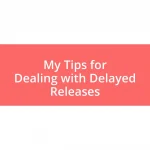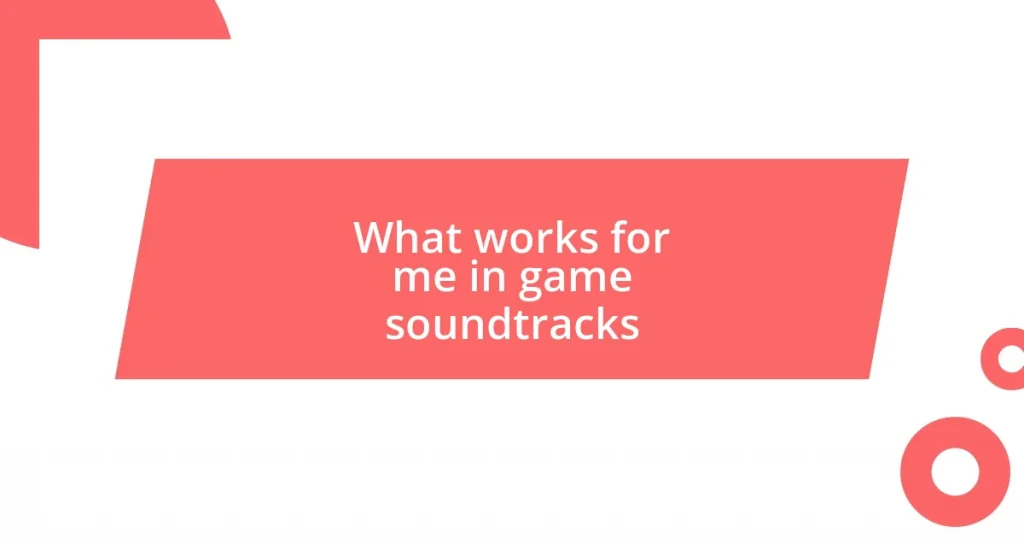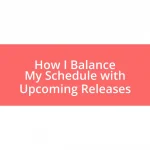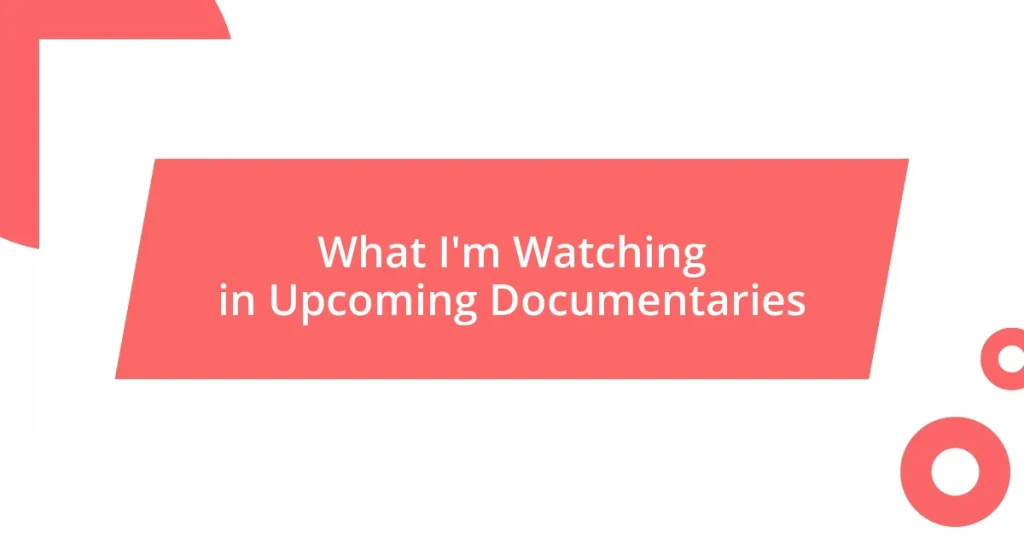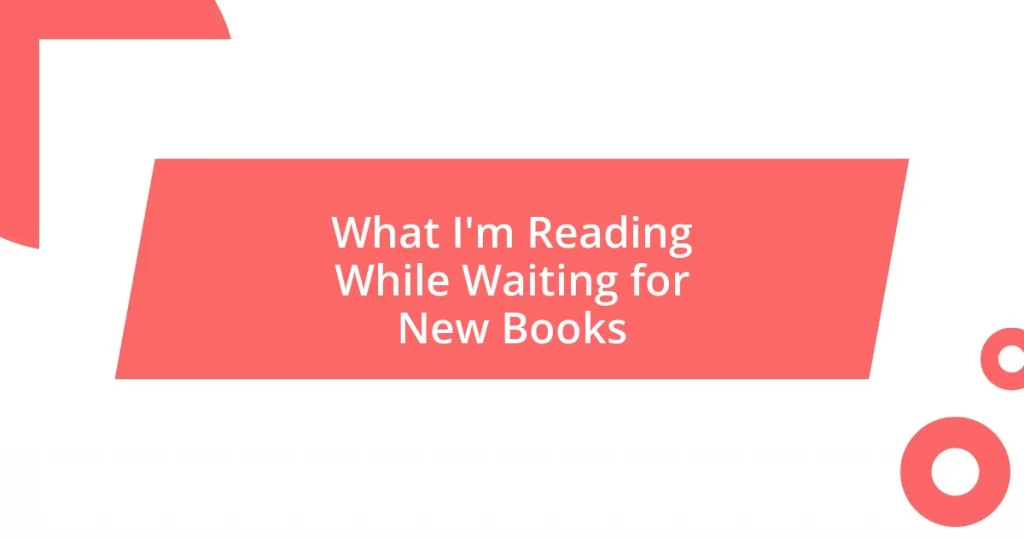Key takeaways:
- Game soundtracks significantly enhance emotional experiences, immersion, and nostalgia tied to gameplay moments.
- Effective game music incorporates emotional resonance, thematic consistency, and dynamic adaptability to enrich the gaming narrative.
- Personalizing playlists by selecting genres and specific tracks can amplify the gaming experience and create profound emotional connections.
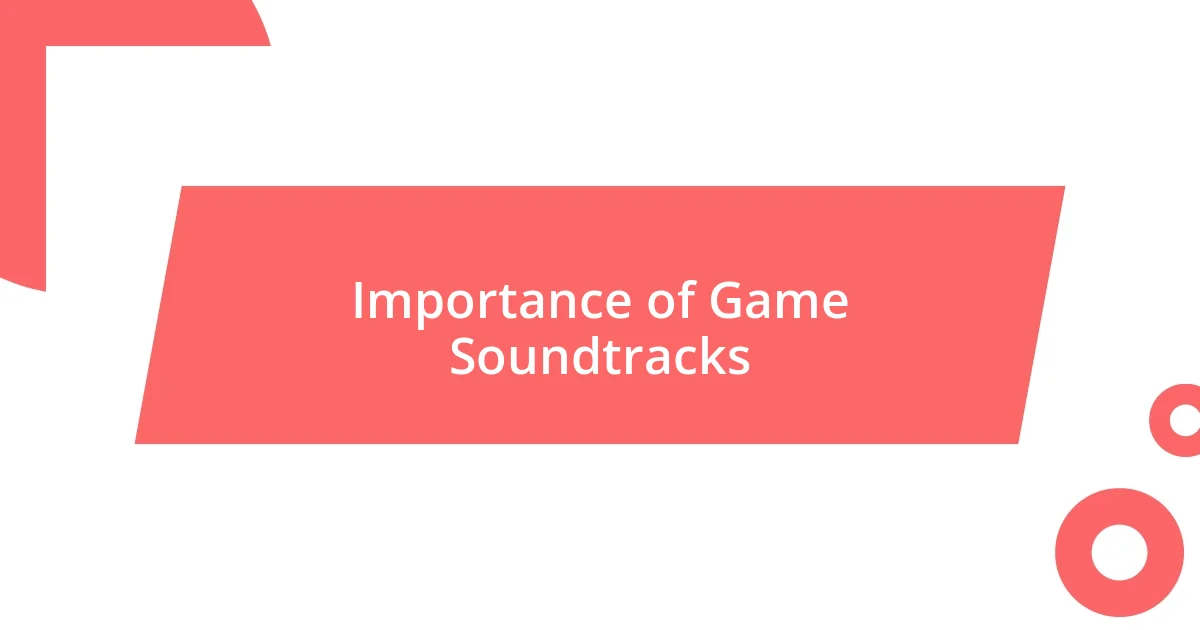
Importance of Game Soundtracks
Game soundtracks play a crucial role in shaping the player’s emotional journey. I remember diving into “The Legend of Zelda: Breath of the Wild,” where the subtle piano melodies enhanced my sense of solitude as I explored vast landscapes. Isn’t it incredible how a well-composed score can transform an entire gaming experience?
Beyond just setting the mood, soundtracks can evoke powerful memories tied to gameplay moments. For instance, the epic orchestral themes of “Final Fantasy” still send chills down my spine, reminding me of late-night gaming marathons with friends. Have you ever found yourself humming a tune long after you’ve put the controller down?
Moreover, great soundtracks can push us towards immersion. When I played “Celeste,” the upbeat chiptune melodies made every challenge feel possible, inspiring me to conquer difficult levels. How often have you felt motivated to keep going, driven by the pulse of music that resonates with your very struggle?
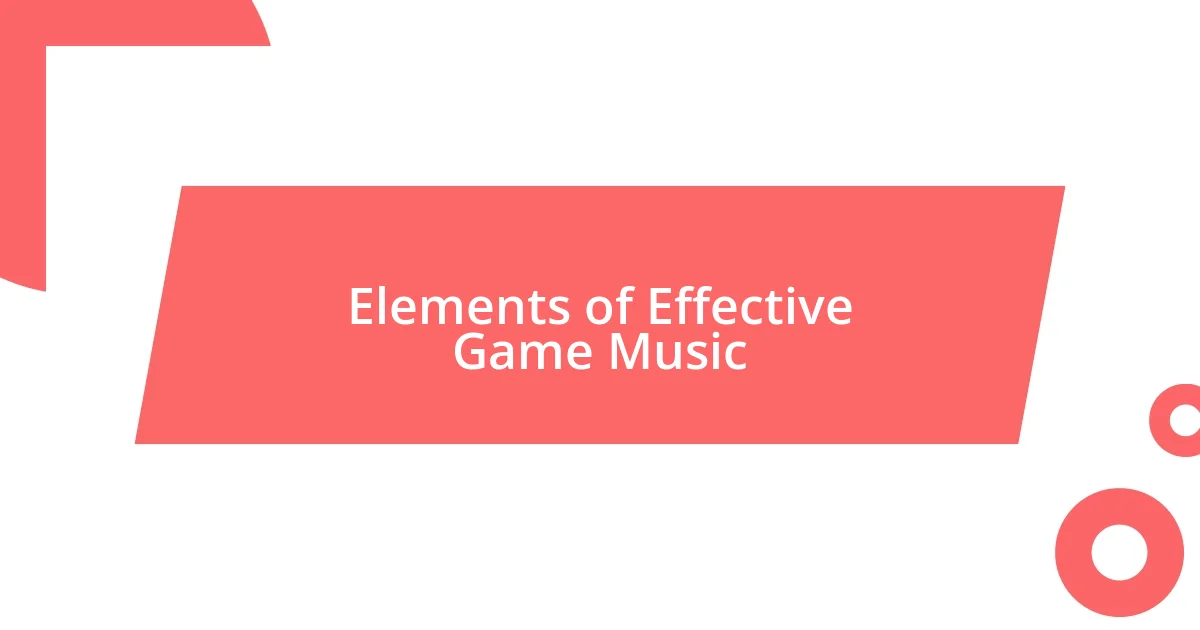
Elements of Effective Game Music
Effective game music is more than just background noise; it’s a crafted experience that draws players deeper into the narrative. I distinctly recall the haunting score of “Shadow of the Colossus,” which created a profound sense of loneliness and urgency. The way the music ebbed and flowed with the gameplay made every confrontation feel monumental, heightening emotional stakes.
Notably, thematic consistency is essential in game music. Take “Journey,” for example: its score evolves with the player’s progression, seamlessly blending with the visual elements to enhance the storytelling. This musical coherence is something I’ve truly appreciated, as it allows the sound to guide us through the emotional arcs of the game.
Dynamic adaptability is another crucial element. In “Halo,” the music intensifies and changes depending on the action, making every combat encounter feel thrilling. I remember gripping my controller tighter as the explosive orchestral arrangements accompanied the on-screen chaos. Doesn’t it make you think how vital it is for music to react to gameplay, amplifying the sensations of triumph or defeat?
| Element | Description |
|---|---|
| Emotional Resonance | Music enhances emotional experience and immersion. |
| Thematic Consistency | The score aligns with the narrative, supporting storytelling. |
| Dynamic Adaptability | Music reacts to gameplay events, enhancing tension and excitement. |
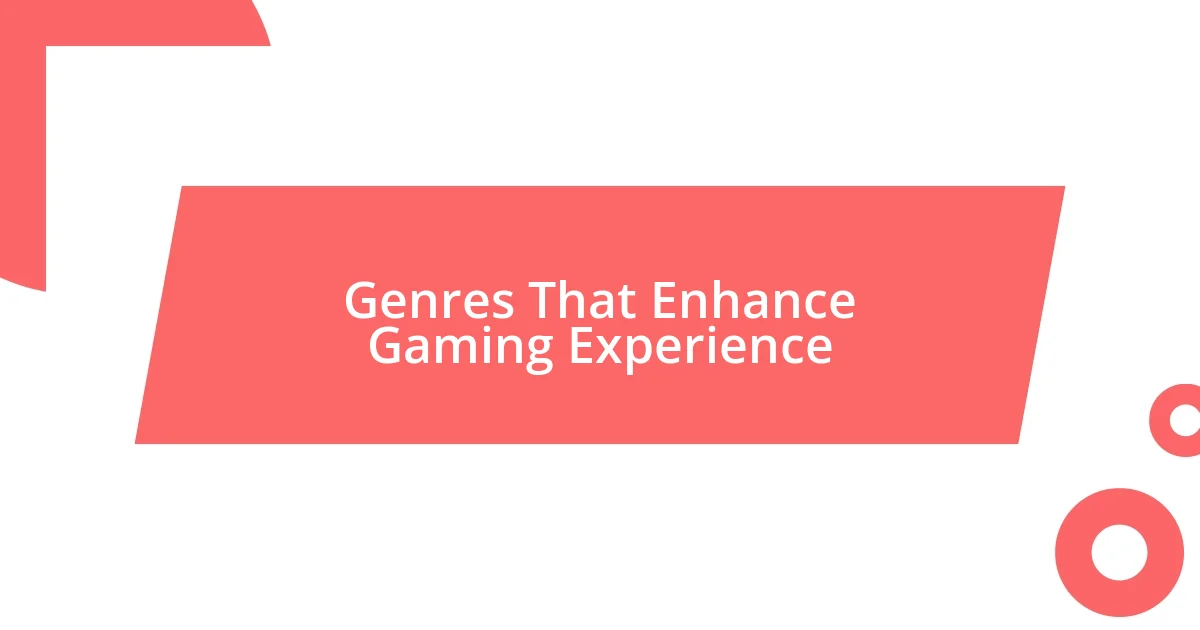
Genres That Enhance Gaming Experience
Genres of music can dramatically enhance the gaming experience by aligning with the emotional core of the game. For instance, when I think of action-packed shooters like “DOOM,” the heavy metal soundtrack doesn’t just amplify the adrenaline; it completely transforms how I perceive each battle. Those screaming guitar riffs and pounding drums make me feel invincible, turning every encounter into a cinematic thrill ride.
Here are some genres that really make waves in gaming soundtracks:
- Orchestral: Evokes epic landscapes and grand narratives, perfect for fantasy games like “Final Fantasy.”
- Electronic: Energizes fast-paced games, often found in racing titles such as “F-Zero.”
- Chiptune: Takes me back to retro vibes, enhancing platformers like “Shovel Knight” with nostalgia.
- Ambient: Creates a dreamy atmosphere ideal for exploration in games like “Firewatch.”
- Metal: Intensifies combat experiences, particularly in games like “DOOM” and “God of War.”
Every genre contributes uniquely, making certain moments resonate on a deeper level. There’s nothing like the way a synthwave soundtrack can pop in a cyberpunk setting, creating an atmosphere that’s both thrilling and immersive. I often find myself reloading my favorite playlists, wanting that energy to bolster my focus and enjoyment while I conquer new challenges.
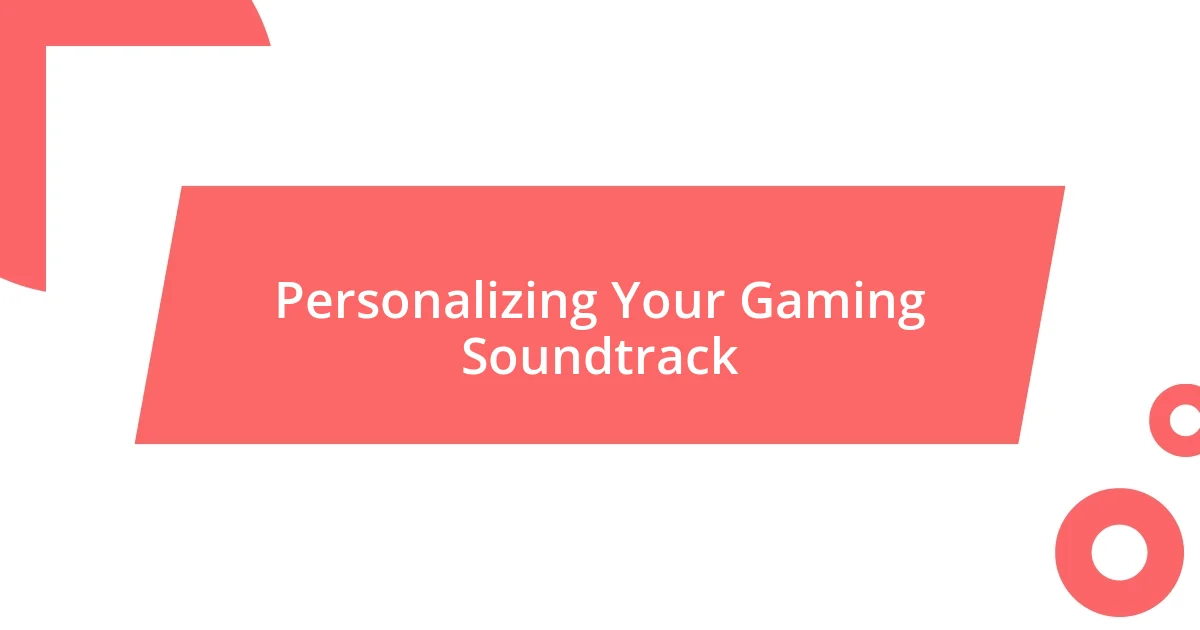
Personalizing Your Gaming Soundtrack
Personalizing your gaming soundtrack can be an incredibly rewarding experience. I often find that curating playlists that resonate with my gaming style not only elevates my gaming sessions but also enhances my emotional connection to the game. For instance, when I dive into an open-world adventure, I might queue up some ambient electronic tunes that help me relax and absorb the rich environment around me. Have you ever noticed how the right song can make the world feel alive?
Moreover, I love experimenting with mixing genres to create unique auditory experiences. One of my favorite strategies is combining orchestral pieces with heavy beats for intense moments, like racing through a lush landscape in “Forza Horizon.” The melodies swell, and my heart races, perfectly syncing with the thrill of the chase. It’s fascinating how music can amplify adrenaline and transform even ordinary gameplay into an epic experience, don’t you think?
Finally, the emotional journey that a personalized soundtrack can guide you on is profound. I recall a recent late-night gaming session paired with a nostalgic chiptune mix from classic games. Each pixelated note brought memories flooding back, reminding me of the joy of discovery and the thrill of childhood gaming. It made the challenges I faced in the game feel more significant, adding layers of meaning to every victory. In your own gaming journey, what soundtracks evoke the richest emotions?
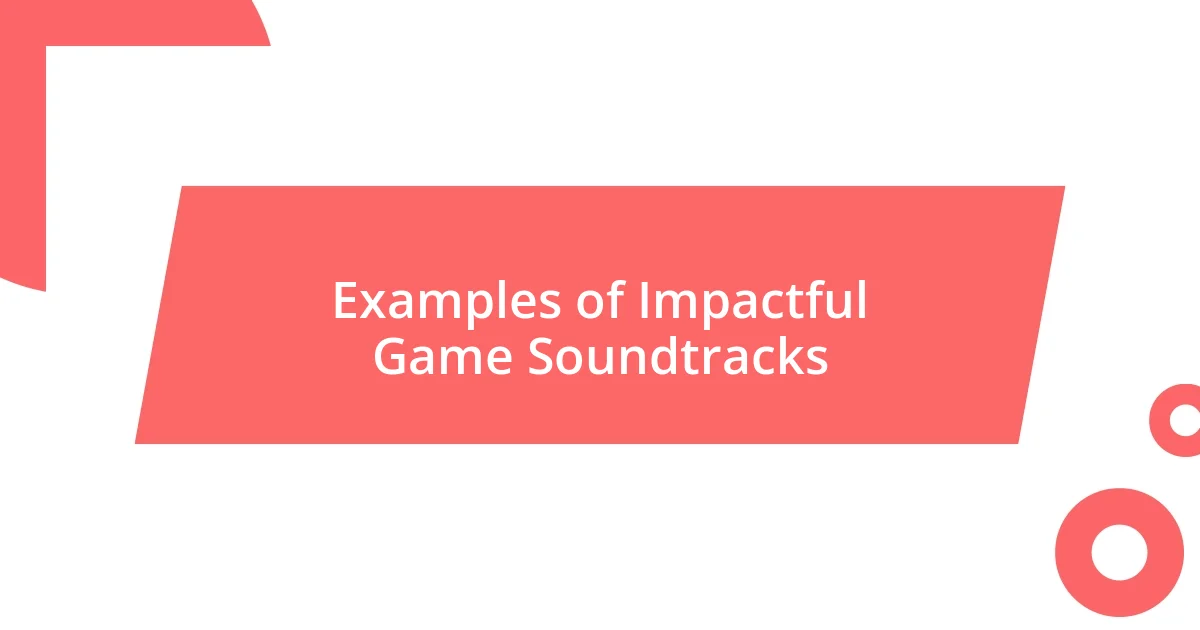
Examples of Impactful Game Soundtracks
When I think about impactful game soundtracks, one that stands out for me is the score from “The Last of Us.” The haunting melodies linger long after the game is over, encapsulating the profound themes of loss and survival. I remember getting chills during pivotal moments as the music shifted from serene to heart-wrenching, capturing the full spectrum of emotions that the characters experienced. Isn’t it fascinating how a simple piano note can convey so much?
Another phenomenal example is the soundtrack of “Journey,” which intricately weaves itself into the fabric of the gameplay. The way the music swells and recedes as you traverse vast deserts and climb snowy mountains makes each moment feel sacred. I often find myself reflecting on how the minimalist approach to both visuals and sound enhances the overall experience, making the player’s journey feel intimate and profound. Have you ever felt like the soundtrack was a character in its own right?
Finally, I can’t overlook the nostalgic impact of “Chrono Trigger.” The dynamic compositions in this classic RPG not only set the mood for each timeline but also evoke a sense of adventure that resonates deeply with me. Listening to the main theme sends me back to countless afternoons spent traversing pixelated worlds, where every battle and every friendship felt monumental. It’s amazing how game soundtracks can etch memories into our hearts, isn’t it?

Tips for Curating Your Playlist
When curating your playlist, I always recommend starting with a theme that resonates with the vibe of your gaming experience. For instance, when I play a mysterious horror game, I lean towards dark synth tracks that mirror the game’s eerie atmosphere. This not only enhances immersion but also draws me deeper into the unfolding story. Have you ever noticed how the right thematic choice can set the stage for everything that follows?
Steering the emotional tone is another crucial factor. I find that building a playlist with varying intensities keeps things fresh and engaging. For instance, I like to alternate between calm tracks and exhilarating beats. Just the other day, while tackling a challenging boss fight, the shift from soft orchestral music to pounding drums propelled my focus and excitement. How do you manage the emotional rollercoaster of your gameplay sessions?
Lastly, I suggest being selective with your final playlist. I personally like to include only tracks that evoke a strong emotional response or remind me of specific in-game moments. This personal touch makes the playlist feel authentic and tailored, enhancing each session’s emotional weight. It’s almost like creating a time capsule of my gaming memories. Which tracks have left a lasting impression on your own gaming journey?






